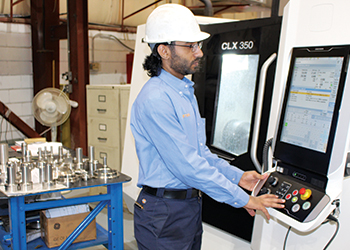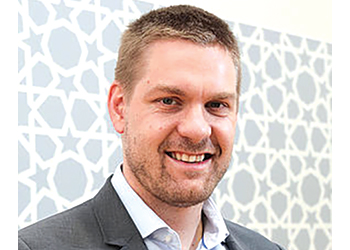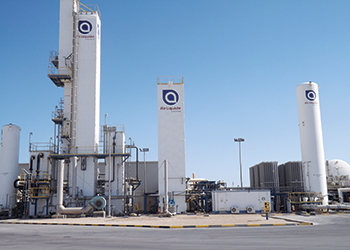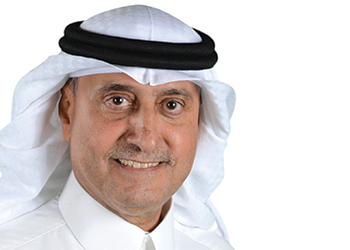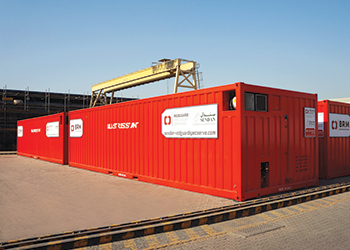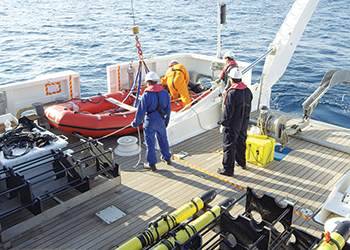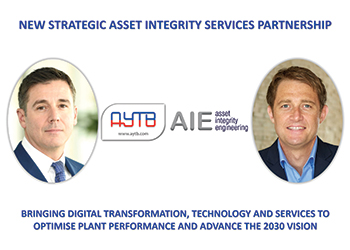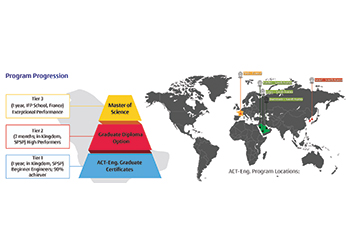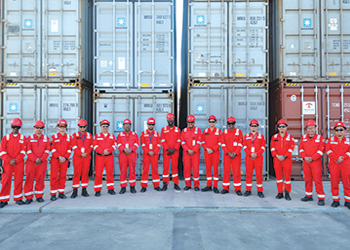
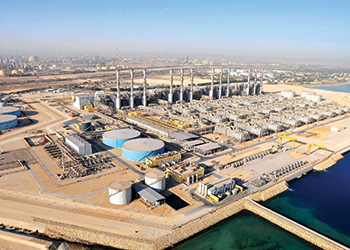 Jubail Industrial City ... a key pillar of Saudi Arabia's economic diversfication plan
Jubail Industrial City ... a key pillar of Saudi Arabia's economic diversfication plan
The industrial cities of Jubail and Yanbu, essential elements in Saudi Arabia’s ambitious plans of diversification, are where national technological potential and advancement is concentrated
The first quarter of 2020 ushered in news of a promising future for Saudi Arabia’s two main industrial cities, Jubail and Yanbu, where requests for investment worth billions have been pouring in despite the crippling economic effects globally of the Covid-19 pandemic
The Royal Commission for Jubail and Yanbu (RCJY) said it had attracted investments worth over SR50 billion ($13.3 billion) during Q1, the country’s national news agency SPA said, citing Abdullah Al Saadan, the RCJY Chairman.
Applications for investments worth SR29 billion were for Jubail alone.
Out of the combined SR1 trillion volume of investments of Jubail and Yanbu, the former has the lion’s share of SR755 billion. Its production capacity has exceeded 148 million tonnes of materials annually.
Once a small fishing village until 1975, Jubail Industrial City is today the world’s largest industrial area and home to the fourth largest petrochemical company (Sabic) on the planet. It also has the world’s largest Independent Water and Power Project (IWPP), which produces 800,000,000 liters of water and 2,743.6 megawatts of electricity per day.
The Jubail Industrial City is estimated to have 116,000 workers who live in 39,000 residential units in 11 residential neighborhoods.
 |
Air Products Qudra breaks ground on fully-integrated industrial gases hub in Jubail Industrial City |
The government clearly acknowledges the contribution of the industrial cities, and the private sector in general, to the national economy. It was no surprise then when it announced several initiatives to support the private sector
The Kingdom responded swiftly to limit the impact of an economic downturn set in motion by the global coronavirus pandemic. It outlined an extensive scheme of national measures targeted towards supporting the private industrial and mining sectors, reported SPA.
Mandated by a royal decree, the Ministry of Industry and Mineral Resources launched 27 measures to address matters directly affecting private industrial and mining enterprises and investors. These measures include financial restructuring, exemption or deferment of fees, discount on electricity bills, loan schemes, amongst others.
Bandar bin Ibrahim Al-Khorayef, the Minister of Industry and Mineral Resources said: 'The initiatives for the industrial sector would have a significant impact in reducing the burden on this vital sector in the Kingdom.'
Separately, Saudi’s Okaz Arabic language daily, quoted the Royal Commission for Jubail CEO Mustafa Al-Mahdi to have said that seven initiatives had been launched to ease the negative impact of Corona pandemic on investors in the industrial and commercial sectors in Jubail.
One such move includes the extension of land lease for one year without an increase in rent, while a decision was also made to postpone actions against investors who failed to start their projects on time.
The success of Jubail and Yanbu have become blueprints for other industrial cities across the Kingdom. Last year, the Royal Commission for Jubail and Yanbu was tasked with developing and managing mining industries in Ras Al-Khair Industrial City, a sprawling complex located on Saudi Arabia’s northeastern coast. The new city has already attracted investments worth SR100 billion ($26.67 billion), an SPA report said.
NEW KEY PROJECTS
Al Saadan ... leading investment in Jubail and Yanbu

Meanwhile, both Jubail and Yanbu continue to sign investors, planning some major projects mostly in oil and gas.
Late last year, US energy technology service provider Baker Hughes broke ground broken on a chemical plant in Jubail, at the PlasChem Park, adjacent to the Sadara chemical complex.
The new facility, full in alignment with the country’s In-Kingdom Total Value Add (IKTVA) programme, will deliver chemical-related services for hydrocarbon production, transmission, processing, as well as petrochemical industry. It will be supplied with feedstock by Sadara as part of a 20-year agreement.
PlasChem Park, a collaborative effort between Sadara and the Royal Commission for Jubail and Yanbu (RCJY), is a 12-sq-km industrial park in Jubail Industrial City II, dedicated to chemical and conversion industries.
Two other major projects with a combined investment worth $1.8 billion were signed by a subsidiary of Saudi-based Advanced Petrochemical Company (APC)—Advanced Global Investment Company (AGIC)—with leading South Korean group SK Gas for the construction and operation of two major petrochemical facilities at Jubail Industrial City.
The propane dehydrogenation (PDH) and polypropylene units will produce 843,000 tonnes of PDH and around 800,000 tonnes per annum of polypropylene.
 |
ACWA Power and SWPC sign the agreement for Jubail 3A IWP project |
AGIC already has signed an agreement with US-based Lummus Technology for the supply of Catofin Technology for the 843 KTA PDH plant, and two other agreements with Basell Poliolefine Italia for the supply of Spheripol Technology and Spherizone Technology for two PP plants with capacity of 400 KTA each. Project management consultant Fluor has also already been signed up for the project.
Separately, Jubail is poised to become the third global site for Japanese JXTG Nippon Oil & Energy Corporation’s new ethylidene norbornene (ENB) plant.
JXTG Group is the world’s leading ENB producer with one production line in Japan and two production lines in the US.
The proposed capacity of the new ENB plant to be built as part of the Amiral petrochemical complex (a Saudi Aramco and Total joint venture) is 23,000 tonnes per year and it is expected to start commercial operation in the late 2020s.
The plant’s location next to the world scale mixed feed cracker of the Amiral complex will ensure the ENB plant with reliable supply of raw materials and energy.
In another key announcement early this year, Air Products Qudra held a ceremonial groundbreaking to mark the start of work on a world-class, fully-integrated industrial gases hub in the Jubail Industrial City.
The significant investment involves building, owning and operating a world-scale steam methane reformer (SMR) to produce hydrogen; an air separation unit (ASU) to produce oxygen and nitrogen; hydrogen pressure swing adsorption (PSA) units to recover hydrogen from off-gases; and the installation of comprehensive pipeline networks to connect and transport industrial gases to the broad refinery and chemical customer base in the region.
When fully operational in 2023, the industrial gases hub will reliably serve refineries and petrochemical industries in Jubail Industrial City and the whole of the Eastern Region.
The plant will feature the latest technology to maximise energy efficiency and reduce emissions, and include optimal heat integration to reduce and lower feedstock consumption.
The SMR hydrogen production plant will be the largest ever built by Air Products.
POWER AND WATER
Industrial cities the size of Jubail and Yanbu require an enormous amount of power and water to keep industries running in addition to serving the residents living within its limits and those in nearby cities. The RCJY has been facilitating commissioning of water and power projects to meet increasing requirements.
Last month a consortium led by ACWA Power including Gulf Investment Corporation (GIC) and Al Bawani Water & Power Company (Albawani) signed a 25-year agreement with the Saudi Water Partnership Company (SWPC) for a greenfield sea water reverse osmosis desalination project in Jubail.
The Jubail 3A Independent Water Plant (IWP) will be built at a cost of $650 million and have a capacity of 600,000 cu m of potable water per day.
According to the agreement, the consortium will design, construct, commission, operate and maintain the desalination plant as well as associated potable water storage and electrical special facilities.
A contract was awarded to Abengoa alongside Chinese engineering and construction firm Sepco3 to construct the Jubail 3A plant.
Abengoa’s scope of work, worth more than $200 million, includes engineering, supply, and construction of the desalination plant.
Khaled Al Qureshi, CEO of SWPC said the Jubail 3A would feature storage facilities as well as in-house solar power to reduce burden on the energy grid. It will also be crucial in meeting growing water demand, supplying Riyadh, Qassim and the Eastern Provinces with much needed potable water, he said.
Meanwhile in Yanbu, SWPC signed a 25-year agreement for the Yanbu 4 Independent Water Producer (IWP) project with the consortium comprising France’s Engie and Saudi Arabia’s Mowah Company after it submitted the lowest price of SR1.7446 per cu m.
The desalination plant will be located near the town of Ar Rayyis in the Yanbu region.
The consortium’s scope of works involves development, design, financing, construction, commissioning, operation and maintenance of the 450,000 cu m per day Yanbu-4 IWP.
South Korea based Doosan Heavy Industries will be the EPC contractor for Yanbu-4 IWP.
For power generation, Saudi Arabia is moving on wind project. The Renewable Energy Project Development Office (Repdo) plans to issue a prequalification request for its second planned wind independent power project (IPP) in Yanbu in the second half of this year. It will have a capacity of 850 MW.
Also, Saudi Basic Industries Corporation (Sabic) may launch its own request for proposals this year for a 300-MW solar project in Yanbu.
A feasibility study into the project has already been launched. Its results will show whether Sabic will pursue the project to power its affiliates in the region.
MARITIME FACILITIES
The industrial cities of Jubail and Yanbu are boosted by their proximity to major seaports. The King Fahad Industrial Port in Yanbu is distinguished by its strategic location on the Red Sea coast and its geographical proximity to national factories within Yanbu Industrial City, to serve the industrial complexes in the region, Madinah and its governorates in the future, and to meet all needs of the region.
The General Authority for Ports (Mawani) is keen to enhance the Kingdom’s ports, by forging strategic partnerships with major international shipping lines. It aims to develop the capabilities of Saudi ports and increase their competitiveness so as to develop national exports and imports, investment flows and the development of non-oil state revenues, in line with the goals of Vision 2030.
In March 2020, Mawani announced the launch of a new shipping line, CMA CGM, connecting the Kingdom with East African countries from its Western coast. CMA CGM, the world’s leading company in shipping and support services become the first container shipping line to reach King Fahd Industrial Port in Yanbu.
RCJY Chairman Abdullah Al-Saadan said the shipping line linking Yanbu Industrial City with Jeddah Islamic Port and East African ports will further help investors to reach customers at a competitive cost, which will increase volumes of import and exports in the future.
Yanbu Industrial City is home to over 200 major exporters. Approximately 80% of the industrial output of the West Coast of Saudi Arabia originates in Yanbu, including petrochemicals, industrial products, ceramics, plastics, edible oils, sugar and building materials.
In May, King Fahd Industrial Port in Yanbu received TORM Maren, the largest petrochemical ship the station has received since its establishment, with a load of 109,000 tonnes of gasoline.






































































